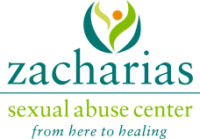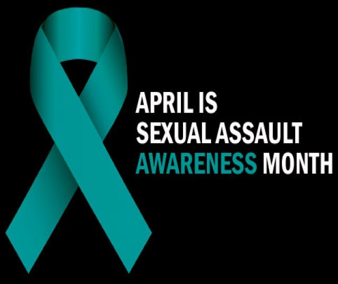People who have been sexually assaulted often report fearing for their safety. While everyone reacts differently to an attack, victims often report common responses. It is important to note there is no “normal” response to sexual violence.
Common reactions to sexual assault are:
Freeze Response
Many survivors report freezing during an attack, this freeze response leads to a significant amount of shame afterward. Many survivors question why they did not “just fight back”. Freezing during an attack is called tonic immobility, which is a threat- induced paralysis that leaves a survivor unable to move or speak(Lovering, 2022). This is a typical response to trauma. In 2017, tonic immobility was assessed using the tonic immobility scale in 298 women who had been sexually assaulted. Results found that 70% reported significant tonic immobility, while 48% experienced extreme tonic immobility (Moller et al., 2017).
Fear Response
Fear responses can happen during and after an assault. At the time of the assault, most survivors fear being killed or physically injured.This fear can persist after an assault and can cause post-traumatic stress disorder (PTSD). This mental health condition causes a wide range of symptoms such as anxiety, depression, self- destructive behavior, anger, irritability, trouble concentrating, flashbacks, chronic pain, memory loss, guilt, shame, suicidal thoughts or ideation, etc. (Gardner, 2022).
Guilt/ Shame
Survivors of sexual violence often report feeling guilt and shame after an attack. Self-blame can come from individual trauma and societal attitudes regarding sexual violence. Rape culture is an environment society has created that places blame on survivors of sexual assault. Rape culture includes attitudes that normalize sexual violence through language, social media, and music. Rape culture glamorizes sexual violence, objectifies women’s bodies, and teaches men they cannot be raped. These attitudes lead survivors to experience a significant amount of shame and guilt, especially male survivors.
Denial
After an attack, survivors may not realize they have been assaulted due to denial or shock. Denial is a defensive mechanism which is a natural response to a traumatic event.
Disgust/ Feeling Dirty
Survivors also frequently report feeling disgusted and “dirty” after being assaulted and take many showers in effort to feel clean.
If you have been assaulted, please reach out to Zacharias Center. It does not matter if it happened yesterday or thirty years ago; we are here to help. Bringing up an attack can be daunting, but you can call our 24/7 crisis line and remain anonymous at 847-872-7799. Our website is also filled with information on sexual violence and dealing with the aftermath. Please know you are never alone, and If you are reading this, we already believe you and your story.
References
Gardner, A. (2022, July 28). 17 symptoms of PTSD everyone should know. Health. https://www.health.com/condition/ptsd/ptsd-symptoms
Lovering, N. (2022, September 14). Trauma-induced paralysis: Understanding trauma immobility. Psych Central. https://psychcentral.com/health/trauma-induced-paralysis
Moller, A., Sondergaard, H. P., & Helstrom, L. (2017, June 7). Tonic immobility during sexual assault – a common reaction predicting post-traumatic stress disorder and severe depression. Acta obstetricia et gynecologica Scandinavica. https://pubmed.ncbi.nlm.nih.gov/28589545/
Written by: Hallie Doherty, Intern September 2023
Child Sexual Abuse: How to Respond
While some children portray behavioral and emotional changes following sexual abuse, others do not. If your child discloses to you a sexual assault, always remain calm and seek support for yourself and your child. At Zacharias Center, we support anyone who has been impacted by sexual violence. All of our services are free, including counseling. Children may not understand that sexual abuse is wrong, but you can teach your child the correct language for their genitalia and let them know which body parts no one should touch. You can tell them they did the right thing by telling you what happened.
What you can say to your child after they disclose:
“Thank you for telling me; it is not your fault this happened.”
- The abuser may coerce children to stay quiet and make them feel what happened was their fault, so it is essential to let them know they are not to blame; the abuser is to blame.
“Safe adults don’t keep secrets; you did the right thing by telling me.”
- The child may feel guilty about revealing the secret or frightened if the abuser has threatened them.
“I believe you and will listen to everything you tell me.”
- The abuser may have manipulated the child and told them no one will believe them if they disclose; it’s essential to let the child know they are believed.
“You are safe to talk about this with me.”
- Talking about the abuse can be terrifying, so make sure your child feels supported when they are disclosing.
“Thank you for telling me; we are going to speak to someone who can help to keep you safe.”
- You can explain that you will make a report for older children.
Responding to a Disclosure
It is normal to feel anger and frustration, but make sure you do your best to remain calm in front of the child. When an adult responds with extreme emotion, the child may feel guilty for upsetting the loved one and blame themselves. Reassure them by letting them know it is not their fault.
The Legal Process
Navigating the legal process can be overwhelming. You can start by calling your local police station to learn about your state’s policies on child sexual abuse and make a report. Contacting your local rape crisis center to connect with a legal advocate and therapist is beneficial. You can always connect with Zacharias center.
Take Care of Yourself
As a guardian or caregiver to a survivor, do not blame yourself, and be sure to practice self-care. When a child is sexually abused and groomed, the perpetrator often manipulates the parent as well as the child to gain their trust. After a child is assaulted, it can affect the parent’s mental health as well. You can always sign up for free counseling at Zacharias Center.
To learn more about grooming, click on the link: https://www.rainn.org /news/grooming-know-warning-signs
With the right help, your child can recover from the assault.
References
Grooming: Know the warning signs. RAINN. (2020, July 10). https://www.rainn.org /news/grooming-know-warning-signs

